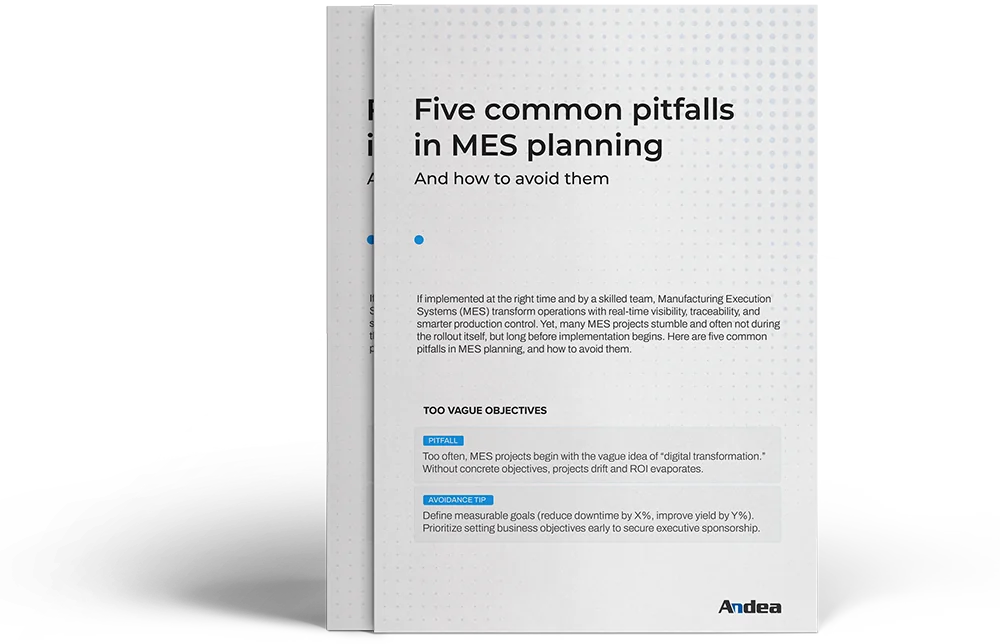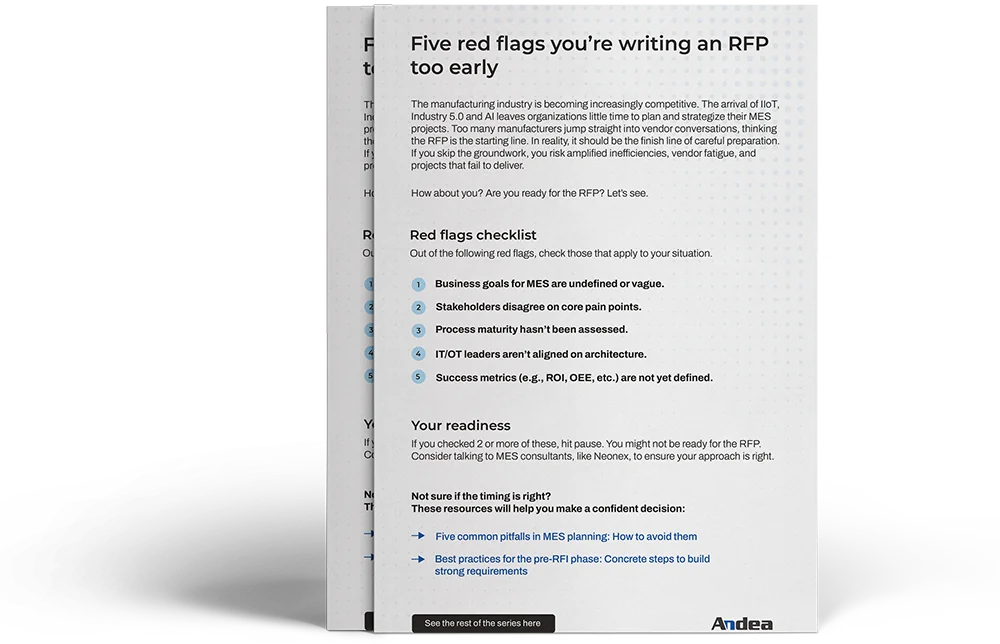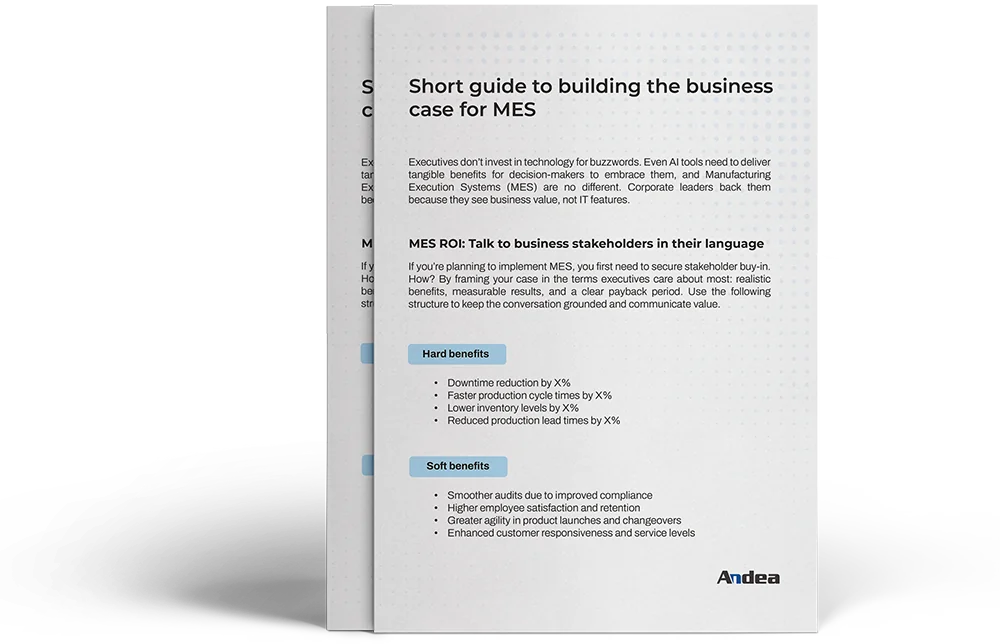Is your manufacturing ecosystem ready for MES?

Über den Autor
Pawel Mierzwa is the VP of Sales Operations and Co-Founder of Andea, our implementation partner for the Dassault Systèmes DELMIA Apriso MES/MOM platform. At Andea, he leads sales and marketing, shapes the company’s marketing strategy, manages partner relations, and works with global clients to maximize the value of their manufacturing technology investments. Pawel brings more than 20 years of MES expertise and over a quarter century of enterprise software experience, having held senior roles across MES, ERP, and BI software companies.
Benefits of a MES system
Manufacturing Execution Systems (MES) offer immense benefits, including real-time visibility, streamlined compliance, and end-to-end production control. But here’s the catch: not every manufacturer is ready for MES.
Jumping in too early can result in wasted effort, over-scoped projects, and unrealized ROI. So how can you tell if your company is ready?
When it might be too early for MES
Some manufacturers face challenges that make MES either a premature or unjustified investment:
- ERP already covers enough: Smaller or simplistic shop-floor processes may be effectively handled with ERP.
- Poor master data: MES depends on clean, structured data without which its performance might be far from optimal.
- Fragmented roles and processes: Unstructured and unstandardized workflows will make MES only magnify inefficiencies.
Before launching an MES selection process, assess where your organization stands both operationally and technologically, and define the direction your stakeholders want to pursue.
Implemented at the right time, MES is a powerful solution
When the timing is right, MES becomes truly transformative and empowering technology. Manufacturers who choose the right integration partner at the right moment realize transformational benefits across all key production areas:
- Traceability and compliance: Critical in highly regulated industries like MedTech or Aerospace & Defense.
- Real-time visibility: Live insights into production, downtime, and quality.
- Operational efficiency: Less manual reporting means fewer human errors, faster response times, and reduced waste.
Simply put, MES implementation is like a math problem—it’s easier to solve if you know the formula. Once you determine the result you want to achieve, the steps to get there become much easier to plan.
Want to dive deeper? Explore a set of practical one-pagers that expand on the most common challenges manufacturers face before MES selection!
Download here
Key considerations for implementation
There’s no doubt MES is a robust solution when implemented according to a well-structured implementation plan. There are, however, challenges that must be considered in a pre-rollout stage. These include:
- Cost: Implementation requires a major investment.
- Complexity: Projects can last months or years, involving multiple stakeholders.
- Cultural resistance: Change management is critical, as daily workflows shift significantly.
How to build readiness
Even if MES isn’t on your immediate roadmap, it can still be part of your future plans. A solution like that can be a game-changer, but timing matters. If your processes are fragmented, data is unreliable, or your ERP meets current needs, it may make sense to focus on these areas first. But by addressing these gaps, you’ll be well-positioned to unlock MES’s full potential when the time is right.
You can build readiness by:
- Cleaning and governing master data.
- Standardizing processes across sites.
- Starting with pilot projects and phased rollouts.
- Building awareness of MES capabilities internally.
You don’t need to rush into the MES selection process and vendor conversations. Combine internal research with external consultations. Talk to MES experts. Become familiar with the extensive capabilities of MES to understand how they can support your production. When you know this, you’ll be so much closer to commencing the MES project.
Readiness is only one side of the coin. The other is making sure MES aligns with your business strategy before you ever issue an RFP. To learn more, see our perspective in Dr. Peter Stephan’s article titled “Why MES success starts before the RFP”, published on Andea’s website.
Interested in more details? This topic will be explored further in our upcoming joint webinar with Andea.




